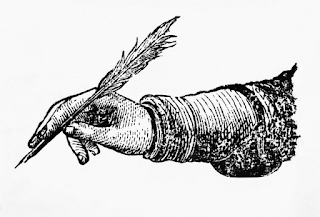 |
Not a problem for the reader, but for the author.
This is because predictions can be made that are then proven to be outlandishly false, maybe new details emerge that contradict the official narrative, or even that the piece in question can be infected with a kind of groupthink that is all too prevalent in the media. Consider how silly a book of collected "GFA = doomsday" style articles from the likes of Ruth Dudley Edwards would seem in 2020.
So really, the best essay collections should be from people who have a certain amount of foresight when it comes to events. Then we can sit back and marvel how such a writer predicted such an event years beforehand, or how their train of thought has evolved as we near the apocalypse.
And while Bland Fanatics may fall short of these lofty heights, it does at least offer up enough thoughts to make us consider how we ended up here.
Born in 1969 to a family who had suffered loss of land when India introduced land reforms the previous decade, Pankaj Mishra has been a fixture in literary/political circles for 25 years. Novels dealing with globalisation and its consequences tally up with various pieces in the New Yorker, Guardian, Wall Street Journal about colonialism, Islamophobia and many other topics. He has a reputation as being something of a polemicist, something he rejects by saying that “If your writing collides with the conventional wisdom, there’s going to be some kind of friction…”
In the introduction to Bland Fanatics, Mishra outlines the context in which the essays were penned as being "...in response to the Anglo-American delusions that climaxed in Brexit, the election of Donald Trump and, finally, a calamitous response to the COVID-19 outbreak."
Casting his eye over the likes of Niall Ferguson (who once threatened Mishra with libel), Remembrance Day, Jordan Peterson (who called Mishra a racist) and liberalism, each essay is a potent look at how the West's colonial past has blinded itself to the problems it now faces in the 21st century, while charting the decline of the UK and the US as coherent nations.
The best (and sharpest) essay is 'The Personal as Political.' Charting Salman Rushdie's career trajectory from street radical to literary establishment, Mishra takes great pains to describe his "...neat opposition between the secular and the religious...rational literary elites and irrational masses..." as belonging to "...an intellectually simpler time, when non-Western societies...could be judged solely by their success or failure in following the great example of the secular humanist West...", ultimately charging Rushdie with now being an apologist for an imperial intellectual culture which cannot see its own role in shaping turmoil.
He also examines the scenes that took place after the publication of The Satanic Verses, where certain liberal types seemed to go along with the idea that the ones burning the book represented all Muslims, and links this with Rushdie’s current view of Islam as a “fanatical cancer.”
Whether one agrees with Mishra or not, it's certainly a skilfully penned essay which will fuel many a debate.
However, there are problems.
Kenan Malik has already gone on record with his belief that there is:
...a narrowness to his own approach, which raises as many questions about Mishra’s critique as he does about liberalism. It is striking, for instance, that there is barely a mention of class in Bland Fanatics, except for the odd line deriding the Brexit pretensions of the British ruling class. To write 16 essays on the problems of liberalism, and the character of its current crisis, without discussing its impact on the working class or the role of the working class in the contemporary anti-liberal tumult, not only in Europe and America, but globally, seems extraordinary.
Another example of this narrowness, although admittedly smaller in nature, is his citation of Conor Cruise O'Brien's famous quote about liberalism, yet no reference is made to his work in suppressing the Irish republican voice through censorship and covert approval of state violence.
Similarly, his views on Brexit and Trump fall prey to the traditional views of them being an expression of the same mindset that led to colonialism and slavery. Yet, a few years previously, he had written about how that form of populism had actually been a failure on the part of liberalism because of their retreat into divisive identity politics while ignoring the roles of community and national identity.
Yes, the legacy of colonialism and slavery has played a part in the havoc we are currently in. However, Mishra is seemingly happy to pile on more polemics instead of looking at ways in which liberalism could save itself and the world from spiralling even further. As a result, it becomes a drudge of a read.
Essay collections, not as easy as they seem.
Pankaj Mishra, 2020, Bland Fanatics: Liberals, Race and Empire Verso ISBN-13: 978-1788737333






No comments